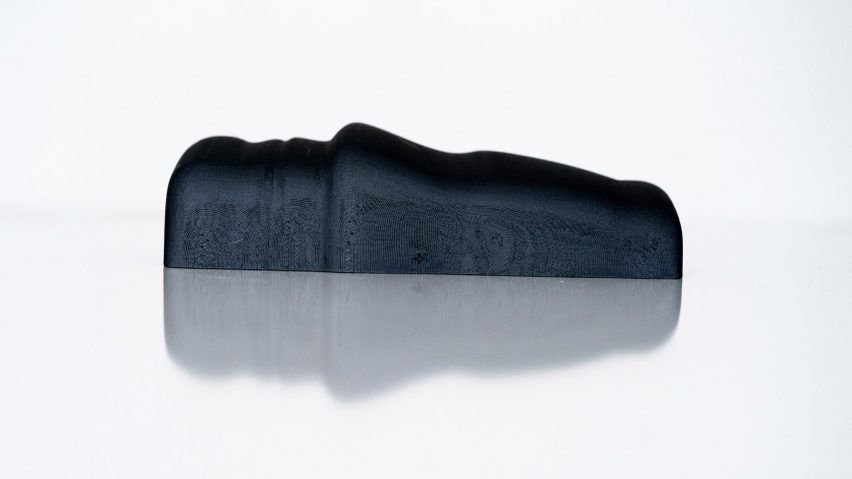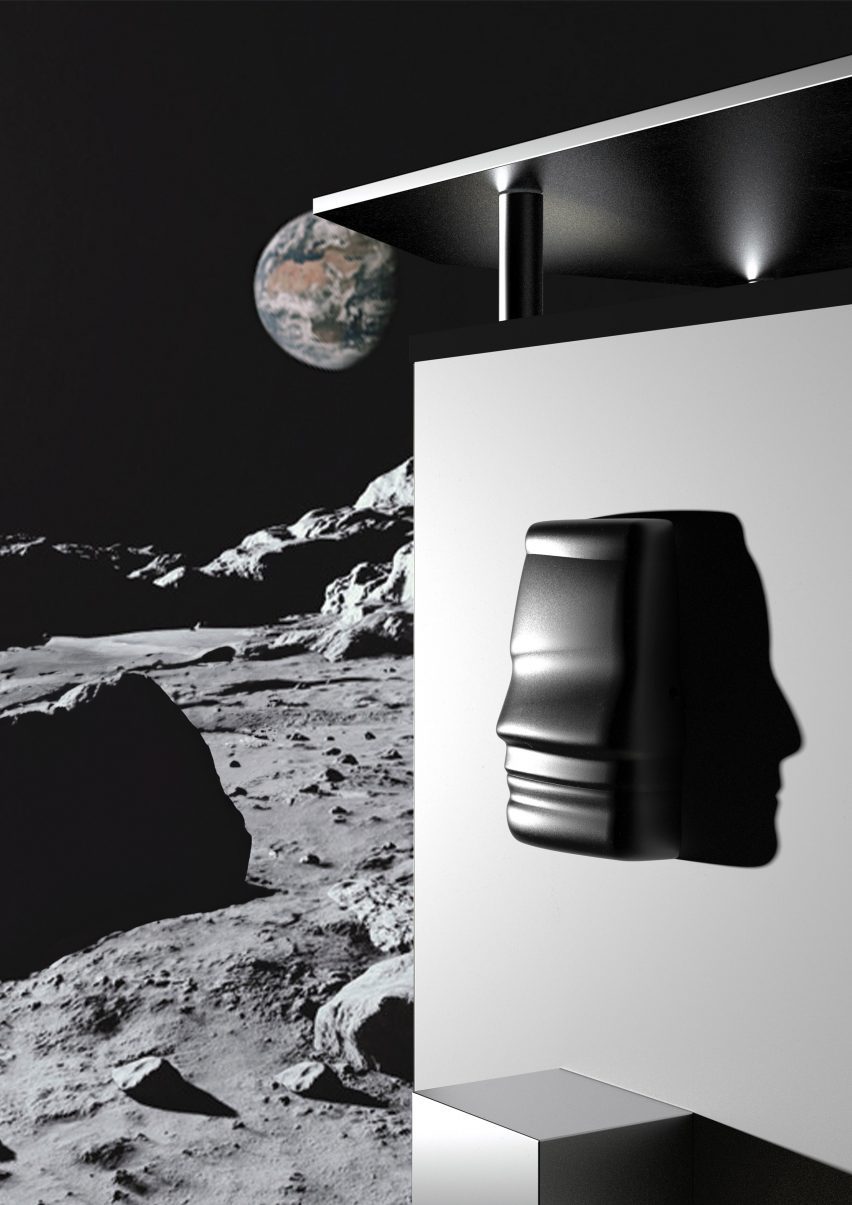
BIG creates 3D-printed data storage device to be sent to the Moon
Danish architecture studio BIG and technology company Lonestar Data Holdings Inc have created a data storage device for the moon, where it is designed to rest indefinitely after arrival.
The device, called Freedom Payload, is about the size of a hardback book and 1 kilogramme in mass. It will store data from "governments, enterprise businesses, and leading NGOs " in outer space.
It will be abroad a lunar lander flying to the moon later this year and function similarly to a hard drive, or the larger data centres spread across the globe. Lonestar Data Holdings Inc (Lonestar) claimed it is the first of its kind in space.
"In an unprecedented partnership between space and architectural innovation, Lonestar Data Holdings Inc. and the world-renowned architectural firm Bjarke Ingels Group proudly present the newly designed Freedom Payload, the first data centre to be sent to space," said Lonestar.

BIG 3D-printed the machine in the shape of the silhouettes of NASA astronauts Charles Duke and Nicole Stott.
"Illustrating BIG's ethos of giving form to the future, it is designed to feature the profiles of two NASA astronauts whose faces will cast changing shadows on the Moon throughout the lunar day (14 Earth days) for thousands of years to come," said BIG.
Duke's profile was used to represent the success of NASA's Apollo program, while Stott's profile was used as a symbol of the ongoing Artemis program, which further explores the moon to "establish the first long-term presence", according to NASA.
A render shows Freedom Payload affixed to the side of its lunar lander, where it will be "entirely solar-powered and naturally cooled" while hosting eight terabytes of data.
"Utilizing advanced 3D printing technology, BIG has seamlessly merged form and function to conceive a structure capable of withstanding the Moon's harsh conditions, all while promoting sustainable practices in extraterrestrial environments," said Lonestar.
The project is part of a larger initiative by Lonestar and others, including researchers from Harvard University and the University of Wisconsin, to move humanity's data storage to the Moon in a bid to protect information in the event of a catastrophe on Earth.
The move will also remove carbon-heavy data centres from the Earth's surface.
"As humanity transitions to a digital society with never-ending data needs, the expansion of data centers to the Moon provide an environmentally friendly means to simultaneously meet the needs of Earth while protecting the planet from carbon-heavy data centres," said Lonestar.
Data storage to be moved to moon
Freedom Payload will launch to the Moon later this year during a NASA Commercial Lunar Payload Services (CLPS) mission, which allows commercial companies to populate technology on the moon's surface for experimentation and testing, according to NASA.
"Freedom is not just a data center, it's a symbol for all humanity of what the future holds," said CEO of Lonestar Chris Stott.
"Through this partnership with BIG, we've been able to embody our commitment to advancing human knowledge and protecting the data that drives our civilization."
Lonestar Data Holdings Inc is based in Florida and was founded by Chris Stott to create lunar data storage and infrastructure.
Previously, Space X won a NASA contract to design a moon lander under the Artemis program, while UK company Metalysis won a contract to develop technology that turns lunar rock into oxygen for future habitation.
The images are courtesy of Lonestar Data Holdings Inc unless otherwise noted.